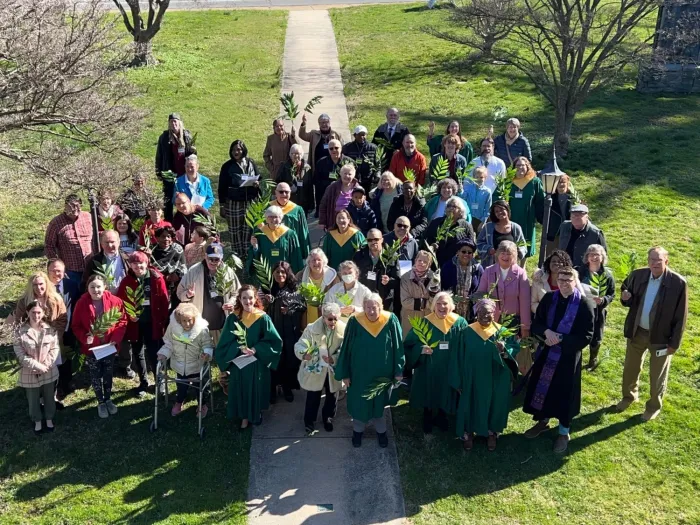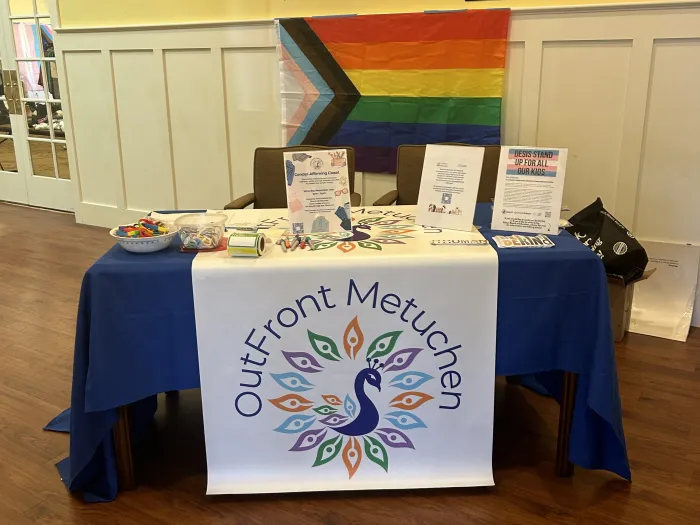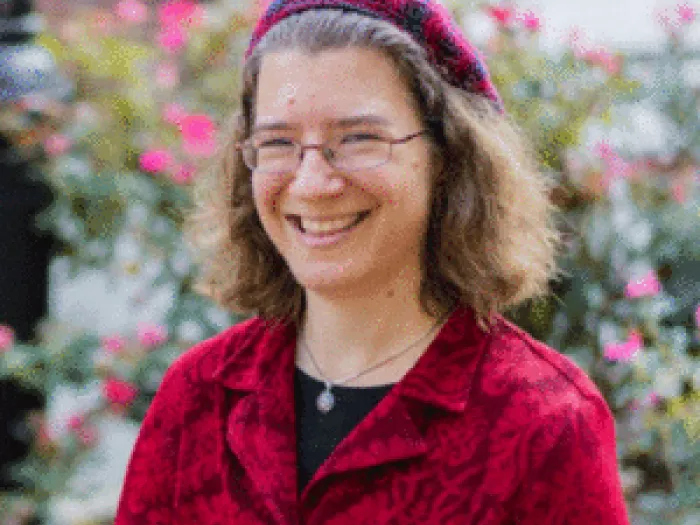Young adults offer suggestions for improving church life and the world
Panelists express ‘sense of urgency’ about advocacy and stress importance of inclusivity


CHARLOTTE, North Carolina — To Ariyah Sadler, a recent summer fellow for the Presbyterian Office of Public Witness, there’s a strong connection between advocacy and loving thy neighbor.
“Loving your neighbor doesn't just mean to love the people who are immediately around you or people who are like you or in your community,” said Sadler, a senior at the University of North Carolina at Chapel Hill. “It isn't just an emotion, a feeling. It is a commitment. It is wanting the best for the other people in this world, regardless of background, regardless of race, gender, sexuality, ability, any of these things.”
Sadler was part of a diverse panel assembled for the Presbyterian Church (U.S.A.)’s Young Adult Advocacy Conference, which was recently held in Charlotte, N.C. All of the panelists at the regional conference were young adults who expressed their opinions on a variety of topics, primarily related to social justice advocacy and improving the church.

Typically, in church settings, “there's a lot more older people talking and a lot of younger people listening,” said panelist Leon Bee Wang, who also was a recent summer fellow for OPW. There should be more opportunities, so “young people can continue to get our voices out there to be heard by the church, both at large and in small congregations.”
In addition to Wang and Sadler, panelists included Adonis Johnson, an AmeriCorps volunteer with Habitat for Humanity of the Charlotte Region who graduated from University of Charlotte at Pembroke; Olivia Phelps, a former OPW summer fellow who recently graduated from East Carolina University; Rosa Ramirez, associate director of diversity, inclusion and community engagement at Queens University; and the Rev. Erin Tolar, resident pastor of Myers Park Presbyterian Church in Charlotte.

Suggestions offered during the wide-ranging discussion included the need to provide more liturgy and music in Spanish, being more welcoming to people from different backgrounds and socio-economic groups, speaking out when people use Christianity to promote hate, and resources on how to provide a space for conversation about issues before shutting people down.
On the subject of advocacy, Toler said that she and other young people feel “a sense of urgency” about it, particularly on issues like climate change, which is impacting everyone now and will continue to “snowball” in the future.
Phelps said, “My generation is angry with the state of things in our country, in our world, in our cities, our communities” but also has access to technology that gives them knowledge and empowerment and also “the ability to empower each other across the world.”
Sadler talked about the importance of using one’s anger as motivation to change and create “something new and something different and something better for the people around us.”
Johnson said they are part of a generation that is not afraid to be themselves and to take to the streets, if necessary, to protest about issues such as health care, race or gender. “Like one of us just said, if it's not going to be us, then who? Who's going to be the change”
Ramirez also spoke about the boldness of today’s young people.
“I think what I hear both from my peers and what I hear from my students as well is that this generation has been told in many ways, when we were growing up, that there wasn't a seat for us at the table … and what I see is that folks are finding that seat at the table, and if they're not finding that seat, they're bringing their own table, and they're using their talents in a different way” to benefit the movement.
Discussing their experience in church settings, Wang, a queer, Chinese immigrant who also is disabled, talked about advocacy as an outward display of “what the Spirit has put in here (my heart).” They also spoke about the importance of remaining true to oneself and overcoming negativity.
“I find that no matter what people keep throwing at me … I show up and I force people to acknowledge that I can be in this space,” Wang said. “I can be up here speaking about God, and other people can do that too.”
PC(USA) advocacy director the Rev. Jimmie Hawkins, who moderated the discussion, gave each panelist the opportunity to give a charge to the audience. Some of the answers included getting involved in a cause that “really matters to you,” being authentic, and being supportive of others.
Ramirez of Caldwell Presbyterian Church offered advice about making amends.
“I would say that understanding bias, recognizing your privilege and learning how to confront the harm that you have caused” is important, she said, “because even in bodies that have marginalized identities, we can still cause harm. And so, I think it's really important for all of us to pay attention to … how we are harmed and also how we harm people, so that we can continue to move forward and work together, because if we're not aware of our bias, we can't really work together as a unit and as a church.”
Johnson talked about the value of being compassionate and supportive to counteract how draining life can be.
“Don't use your negativity to tear somebody else down,” Johnson said. “Instead, flip that negativity and turn it into something positive. You never know what somebody else might be going through.”
The conference was hosted by OPW and the Presbyterian Ministry at the United Nations, which are both part of the Compassion, Peace & Justice ministries of the Presbyterian Mission Agency. Participants also listened to sermons, attended worship and workshops, took part in a gun violence prayer vigil, and received advice from special guests, such as the Rev. Tony Larson, co-moderator of the 226th General Assembly, and the Rev. Dr. Jan Edmiston, co-moderator of the 222nd General Assembly.
You may freely reuse and distribute this article in its entirety for non-commercial purposes in any medium. Please include author attribution, photography credits, and a link to the original article. This work is licensed under a Creative Commons Attribution-NonCommercial-NoDeratives 4.0 International License.




